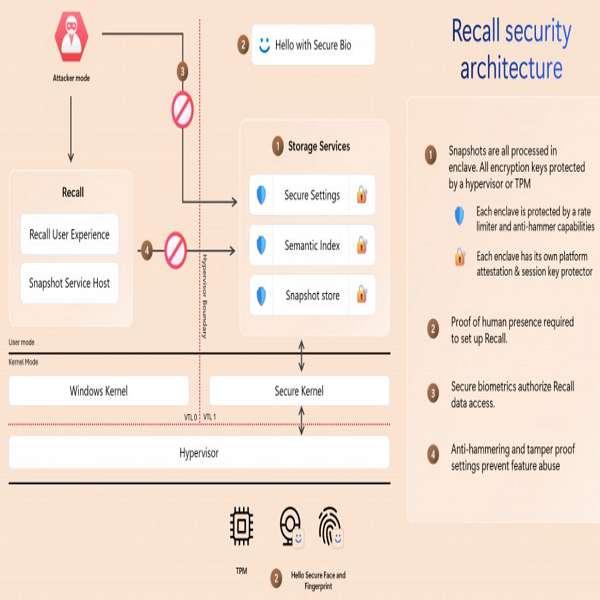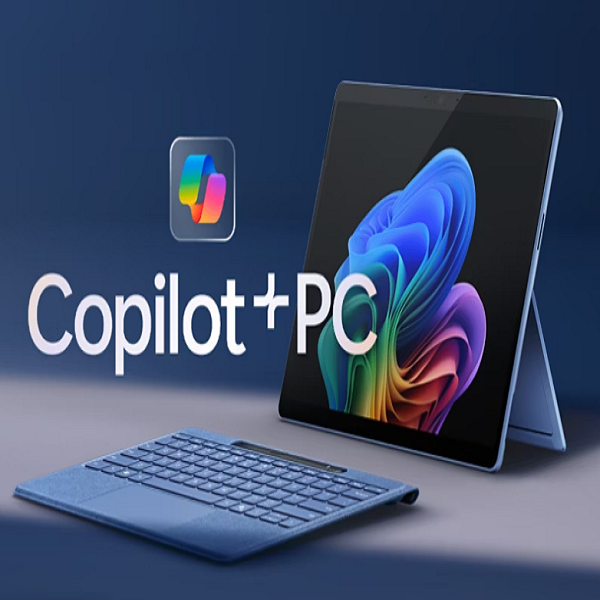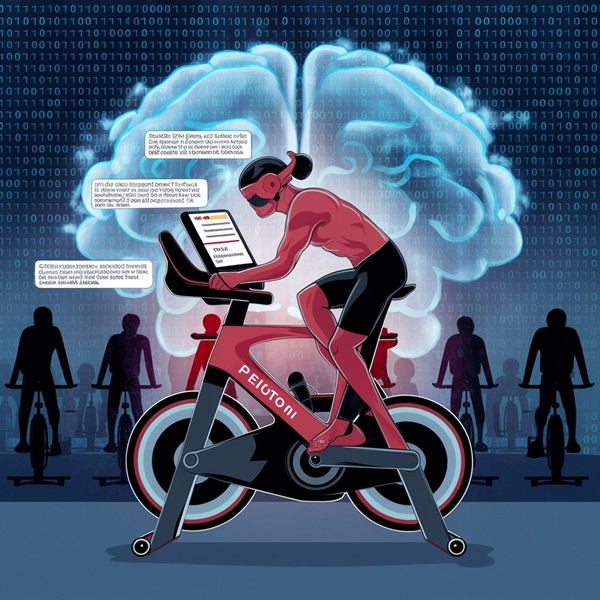When Microsoft first launched its Recall feature in June, it received criticism from security experts who initially labelled it a “privacy nightmare.” It faced serious pushback from the cybersecurity community. These security concerns have led to a significant review of this AI-powered feature, which Microsoft reveals has been updated to address these concerns.
Microsoft has rebuilt the feature with privacy at its core, implementing several crucial changes that give users greater control over their data. It has been redesigned on four Security and privacy design principles; user control, encryption of sensitive data, isolation of services, and intentional use.
The most significant change is that Recall is no longer enabled by default. Users must now explicitly opt-in to the feature when setting up a Copilot+ PC. Furthermore, users who do not want the tool, can completely remove it by using the Windows’ optional features settings.
Microsoft has implemented strong encryption for all snapshots and related information. The encryption keys are protected using the computer’s Trusted Platform Module (TPM) and are tied to the user’s Windows Hello Enhanced Sign-in Security identity. This ensures that only authorised users can access their data.
David Weston, Microsoft’s vice president for Enterprise and OS security says that for additional security, Recall operates within a secure environment called a Virtualization-based Security Enclave (VBS Enclave). This means that only information which the user has specified while actively using Recall can leave the environment.
One major concern was that sensitive information such as passwords and other credentials could be accessed by threat actors. In response to this, Microsoft has introduced several privacy-focused features. Recall automatically disables snapshot saving during private browsing sessions. Users can block specific websites and apps from Recall, control data retention periods, and easily delete unwanted data. A new automatic sensitive content filtering system helps prevent the storage of sensitive information like passwords, credit card numbers, social security number, PII in snapshots.
For authentication, the system uses Windows Hello Enhanced Sign-in Security for all operations, with PIN authentication available as a backup only after initial setup. Additional security measures include rate-limiting which prevent automated attacks by restricting the number of access attempts and anti-hammering measures that block brute force attacks.

Once again, Watson reassures users that Recall does not share snapshots or associated data with Microsoft or third parties, nor is it shared between different Windows users on the same device. With Recall said to be out this October in Copilot+ PC, these security and privacy updates will be tested.
Microsoft has demonstrated a commitment to ensure user security and privacy as seen in these updates. The company aims to make AI accessible while maintaining robust security against sophisticated threats. The transformation of Recall from a privacy concern to a security-focused feature shows how user feedback and security expertise can shape technology development. Other tech companies can learn from this and also pay attention to public feedback to improve their product.
As AI technology continues to evolve, such attention to security and privacy will become increasingly crucial. This is to ensure that attackers do not leverage on these errors to steal data and launch an attack. Developers of AI-powered products should take great care in building safe products with user safety and privacy as a priority.





